#virile grandpa escape
Text
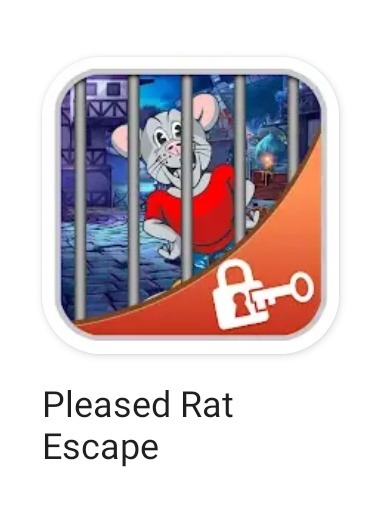



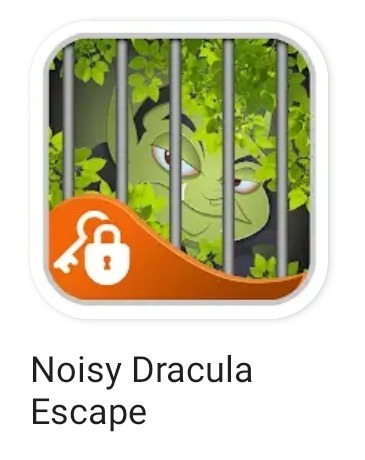
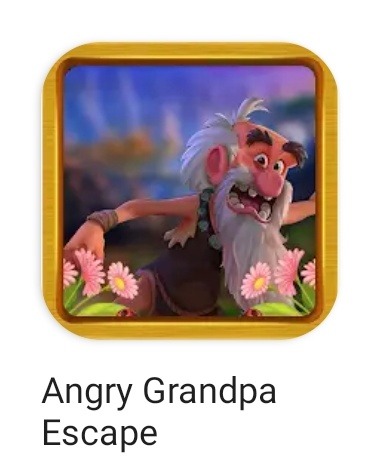
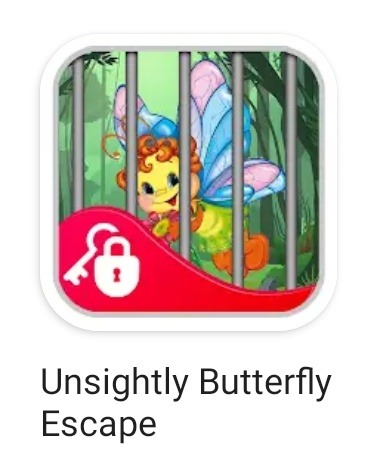
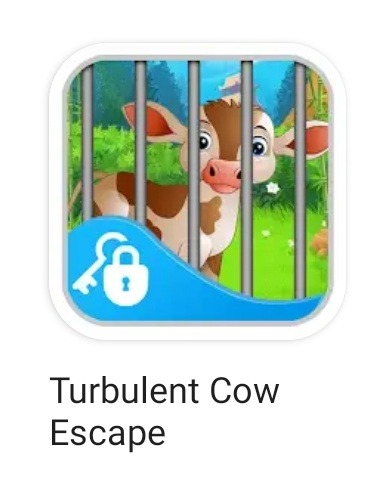

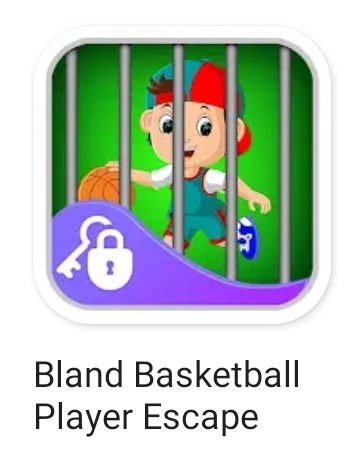
A selection of escape games from JRK Games.
#pleased rat escape#potent dog escape#ecstasy pencil escape#virile grandpa escape#noisy dracula escape#angry grandpa escape#unsightly butterfly escape#turbulent cow escape#majestic grandpa escape#bland basketball player escape#jrk games
7K notes
·
View notes
Photo

Nuevo juego en tribujuegos.com : Virile Grandpa Escape https://www.tribujuegos.com/game/virile-grandpa-escape En un pueblo había un palacio de enorme tamaño. En ese palacio vivía un abuelo viril. Todos en el pu...
0 notes
Text
Family Bonding
I couldn’t stop grinning when I woke up today. Maybe it was the sun shining through the window, or the smell of coffee coming from the kitchen, or the strong, virile body I was wearing. I laughed, it couldn’t have been more than a couple of days since I hopped into this host but every moment spent in him was further proof that I had made the correct choice. It hadn’t been easy cornering him but week after week of playing the part of his coworker, slowly gaining his trust, had all finally led to this moment. I strutted around the room, a ridiculous one-man parade, a treat meant only for my eyes. I stood before the mirror and beheld my lovely form, feeling something begin to stir and strain against my briefs as I did so. Oh, did I feel good. But it was still early, there was plenty to do, places to be, and a lot more masquerading to do. I patted my member as it stiffened in its cloth prison. Perhaps, if I still remained unsatisfied at the end of the day.
I opened the door and walked into the rest of the house. Yes, yes, all of it lovely, all of it in order, all of it mine. I strode into the living room to see a young man having breakfast.
"Morning son," I called out in my strong voice. “Thanks for the coffee,” I boomed again as I helped myself to a fresh cup.
He nodded, hesitantly perhaps? I made a mental note of the way he looked at me today, and didn’t like what I saw. Uncertainty, unease. No that wouldn’t do at all. I resolved to be a better father as I walked up to where he sat.
“What are you doing on this fine Saturday?” I said, slapping him on the back as I did so. He winced, but gave a wan smile. “Grandpa’s coming over to pick me up, we’re going fishing.”
My jaw clenched but I continued smiling even as I felt a low, cold fury building up inside me. “He’s coming over?”
“Yeah, in fact, any minute now. Let me go get my stuff, I want to be ready to leave when he comes.” He grabbed his phone as he walked to his room, closing the door just a tad faster than normal. Something was not right. No, I thought darkly, nothing was right about this. A stern expression came over my face as I closed my eyes. Focus, I just needed some time to think, with this mind I could work out what I needed to do. I clenched my fists, and grit my teeth as I pondered. My father, my own father, the man who raised me, betraying me like this? How could he not tell me he was coming over? Sweat formed on my furrowed brow as I fumed, trying, failing to cool me off. I forced myself to breathe, to take my time. Certainly this was an affront to my senses but any one who saw me like this would think I had gone insane, becoming this worked up over nothing at all. But I had spent this long, worked this hard, only for that bumbling fool to come along and mess with things. I tried to console myself it would only be for an afternoon, no time at all really but inside my heart I knew I was lying to myself. I had become obsessed with this young man, this youth who was now my son. Having him listen to me, talk to me, look up to me, it was heaven. That had been another reason for taking this host, besides his obvious merits. How could I compete with the old man? He was my senior in every way. I couldn’t allow my son to be stolen away under my nose like that. Then again, this father of mine, it was his blood that coursed through my veins, the one who gave me this strong heart to beat his blood through my veins. I grinned, the solution had been so obvious, how could I have been so blind? I shook my head to myself in disbelief, how foolish I had been to not see the enormity of this golden opportunity on a silver plate. The doorbell rang, and I grinned, things were falling into place, everything would be in order, no, they would be even better than before. I heard the sound of my son’s door being opened.
“Is that Grandpa?” I heard his voice.
“Let me check” I hollered back, chuckling to myself as I did so.
Sure enough when I checked the peephole, I saw the familiar visage of my father, my old man standing outside, patiently waiting. I opened the door.
“Hiya Pops.”
“Oh, morning son. Hope you don’t mind, I planned to take Nate fishing. You can come along too if you want!” He laughed to himself, a hearty roar, like a large ashy fire. I marvelled at the sound and subconsciously licked my lips. I could barely contain my excitement.
“Sounds great Pops, I may just join you two but I’ve got something to show you. Come in, come in, we can talk more in my room.”
He graciously accepted my invitation as I undid the locks. Smiling to myself, I chained the gate and shut the door, making sure there was no way anyone could come in, or out.
I led the way to my room, opening the door for my father. He stepped in imperiously, with the air of a man who had gotten his way all his life. Not arrogant, it was just how things worked when you were as loved and respected as he was.
“Alright son, what did you want to tell me?”
I smiled, my eyes lighting up with genuine joy.
“Hold still old man.”
I saw the barest frown begin to form on his face as his brow furrowed in puzzlement. He began to open his mouth to ask the question I knew was forming in his mind. I knew what he was going to say. I didn’t care, instead I lunged at his throat. He choked in a mixture of shock, panic, and utter confusion. He spluttered as he tried to yell out but the cry died in his throat as I held on, my penetrating gaze boring deep into his eyes. He whimpered slightly as he stared back, his pupils rapidly dilating, his normally half-shut eyes now open wide in terror and awe. I had him. I tilted my head back and began to push myself out. Slowly, surely, I unstuck the various parts of myself from within my host. My spectral form tore free from the muscle and bone it had been so deeply encased in for the past few days. I felt his senses began to leave me as his limbs grew numb and his eyes grew dull as I continued to detach myself. My host gagged as he coughed up more and more of my essence. I sighed, apparently even in death I could not escape from certain problems. When I had been alive I had been a large man. Now, I certainly had the spirit to match, just not always the body to go along with it. This vessel had been fairly accommodating, if a bit of a squeeze. The remnants of my ghostly belly bubbled up from my host’s, leaving only my tail to wiggle around in his throat. Just another oddity of being a ghost, though I supposed there was little need for legs if one could just as easily hover over the ground. I rubbed my plump hands together in anticipation. But I couldn’t leave just yet. I clutched on to my hefty paunch, digging in to grab handfuls of ectoplasm. Turning to my host with a loving look, I gently laid it over his face. It jiggled there momentarily, before sinking through his nose, his eyes, and soon it was pouring through every available orifice, heading straight for his brain. I felt the welcome return of his sight, his touch, his taste, though they were different now, faded in a way. No matter, so long as I still retained control, still dictated every breath he took, every step he made. Having finished the necessary preparations, I turned back to the old man. His shallow breaths indicated he was still under, still waiting but close, too close to consciousness. I smiled, a fighter, he would serve me well. I rubbed my hands together once again, straightening them out as far as they would go. Using my hosts’s mouth as a makeshift springboard, I lifted myself into the air, and dove straight into the old man’s open jaw.
Oh, what a RUSH. I could feel him, his spirit as it thrashed away, aware of this foreign presence, this threat to itself. I tunneled further, deeper still, pushing past the walls of red and white to the soft ethereal core. In one smooth motion, I grabbed onto it as I swung myself upright using the momentum I had gained, and pressed my own into it. It shuddered as it felt the unwelcome intrusion, the way it unwillingly yielded to take in mine, the way it could do nothing but accept me.
I opened my eyes, feeling a brand new set of senses fill my consciousness, swamping me with new information. I closed my eyes as I drank it all in, gluttonously sucking in as much as I could. More, more, more. I choked, opening my eyes involuntarily as I huffed a few short pants. Looking at me lovingly... was me. Even now as I looked at him, I could also see him looking at me through his eyes. We smiled in unison, lips curling up perfectly in sync. I smirked and he did as well. I laughed, and the bass of our voices layered effortlessly with each other, bouncing around the room. Together, we began to unbutton our shirts, unbuckle our belts. As the clothes slipped off our bodies we tumbled onto the nearby couch, staring at each other, scarcely breathing as we gazed at each other’s beauty. As the old man, I laid down first, slowly curling my back while still ensuring I could see my son. As my son, I brought my hairy body atop my father’s. We shivered, feeling the way our fur, our skin, brushed against each other, every contact a small jolt of pleasure. We looked at each other, entranced. It was understood what was to be done, no words needed to be said.
---
I stepped out of the room as the old man. Strong as these bodies were, the rapid sequence of activity had drained the younger. It was time for me to rest, but also time for me to continue my day afresh, with the adrenaline rush of a new host. I stepped out into the living room to see a young man sitting on the couch, staring at his phone. He looked up as I approached.
“Grandpa! You’re here!” He said, surprised. I closed my eyes from the abrupt rush as he addressed me, so trusting, so sincere.
“Sorry son,” I rumbled, “didn’t mean to keep you waiting. Had some matters to discuss with your dad.”
“Oh.” His face fell as he cast his eyes downwards. I frowned but stayed silent, sensing he wanted to say something.
“About dad... he’s been acting kind of weird lately. I don’t know what’s gotten into him.” Ah, so that was the problem. I patted myself on the back mentally, clearly I was on a streak of good decisions, making all the right moves.
“Don’t you worry about that son, we’ll have plenty of time to talk on the boat. Now let’s go fishing.” I saw him relax as he raised his head to smile at me. He got up from the couch and started to the door. I clapped a giant hand onto his shoulder, turning my head to give him a knowing wink.
#daddy#father#dad#grandfather#grandpa#daddy bear#beard#family#ghost#bear#male possession#pair possession#multiple possession#split possession#split#long story
78 notes
·
View notes
Text
Role Reversal
Note: I fully did not expect to write this follow up to Rules of Engagement but here we are. Read that story first, if you please.
Warnings: 18+, sexual content, pegging
Shreveport, 1986
Pam murmuring words of affirmation in Eric's ear the first time she pegs him, calling him her Viking warrior and reminding him that he is a grade A hunk of masculine virility while she introduces him to a new world of pleasure. She knows it's a huge step for him, and he never would have agreed if anyone else had suggested it, but he trusts her completely. A feral growl escapes his lips as she fucks him, and for a moment, she thinks he might throw her off him and reassert his dominance. She winds her arm around his hips instead and takes his cock firmly in her hand. "Relax, mighty prince," she purrs in Old Norse, the language of his heart. She kisses his shoulder reverently. "Let me do this for you." She strokes him in time with the rhythm of her hips and feels the tension in his body slowly melt away as he yields to her. Soon she is sinking her fangs into his neck as he comes undone with a gutteral moan. She pulls out slowly and licks the puncture marks on his neck before they fade away. She longs to tease him, but she knows she must be delicate. Men's egos are such fragile things. "How do you feel?" she asks instead, laying down beside him and running her fingers through his golden hair. Eric rolls over and lays his head on her chest. His eyes are half-closed and he seems more relaxed than ever. "We should've done that sooner," he mumbles drowsily. Pam smirks. She trails her manicured fingers along his jaw, hooking one under his chin and tilting it up until he's looking her in the eye, the sharp point of her fingernail at his throat. "I'll remember you said that," she says, her voice cold and deadly. Eric gives her an admiring look, as if he could not be more proud. "I have no doubt you will, Pam."
@grandpa-sweaters @scxrsgxrd @stevesharrlngtons
20 notes
·
View notes
Text
Back to the Future with Bill Cosby and Ta-Nehisi Coates
Coates, from 2009...
“...[T]he shift in focus from white racism to black culture is not as new as some social commentators make it out to be. Standing in St. Paul Church on that July evening listening to Cosby, I remembered the last time The Street felt like this: in the summer of 1994, after Louis Farrakhan announced the Million Man March. Farrakhan barnstormed the country holding “men only” meetings (but much larger). I saw him in my native Baltimore, while home from Howard University on vacation. The march itself was cathartic. I walked with four or five other black men, and all along the way black women stood on porches or out on the street, shouting, clapping, cheering. For us, Farrakhan’s opinions on the Jews mostly seemed beside the point; what stuck was the chance to assert our humanity and our manhood by marching on the Mall, and not acting like we were all fresh out of San Quentin. We lived in the shadow of the ’80s crack era. So many of us had been jailed or were on our way. So many of us were fathers in biology only. We believed ourselves disgraced and clung to the march as a public statement: the time had come to grow up.
Black conservatives have been dipping into this well of lost black honor since the turn of the 20th century. On the one hand, vintage black nationalists have harked back to a golden age of black Africa, where mighty empires sprawled and everyone was a king. Meanwhile, populist black conservatives like Cosby point to pre-1968 black America as an era when blacks were united in the struggle: men were men, and a girl who got pregnant without getting married would find herself bundled off to Grandpa’s farm.
What both visions share is a sense that black culture in its present form is bastardized and pathological. What they also share is a foundation in myth. Black people are not the descendants of kings. We are—and I say this with big pride—the progeny of slaves. If there’s any majesty in our struggle, it lies not in fairy tales but in those humble origins and the great distance we’ve traveled since. Ditto for the dreams of a separate but noble past. Cosby’s, and much of black America’s, conservative analysis flattens history and smooths over the wrinkles that have characterized black America since its inception.
Indeed, a century ago, the black brain trust was pushing the same rhetoric that Cosby is pushing today. It was concerned that slavery had essentially destroyed the black family and was obsessed with seemingly the same issues—crime, wanton sexuality, and general moral turpitude—that Cosby claims are recent developments. “The early effort of middle-class blacks to respond to segregation was, aside from a political agenda, focused on a social-reform agenda,” says Khalil G. Muhammad, a professor of American history at Indiana University. “The National Association of Colored Women, Du Bois in The Philadelphia Negro, all shared a sense of anxiety that African Americans were not presenting their best selves to the world. There was the sense that they were committing crimes and needed to keep their sexuality in check.” Adds William Jelani Cobb, a professor of American history at Spelman College: “The same kind of people who were advocating for social reform were denigrating people because they didn’t play piano. They often saw themselves as reluctant caretakers of the less enlightened.”
In particular, Cosby’s argument—that much of what haunts young black men originates in post-segregation black culture—doesn’t square with history. As early as the 1930s, sociologists were concerned that black men were falling behind black women. In his classic study, The Negro Family in the United States, published in 1939, E. Franklin Frazier argued that urbanization was undermining the ability of men to provide for their families. In 1965—at the height of the civil-rights movement—Daniel Patrick Moynihan’s milestone report, “The Negro Family: The Case for National Action,” picked up the same theme.
At times, Cosby seems willfully blind to the parallels between his arguments and those made in the presumably glorious past. Consider his problems with rap. How could an avowed jazz fanatic be oblivious to the similar plaints once sparked by the music of his youth? “The tired longshoreman, the porter, the housemaid and the poor elevator boy in search of recreation, seeking in jazz the tonic for weary nerves and muscles,” wrote the lay historian J. A. Rogers, “are only too apt to find the bootlegger, the gambler and the demi-monde who have come there for victims and to escape the eyes of the police.”
Beyond the apocryphal notion that black culture was once a fount of virtue, there’s still the charge that culture is indeed the problem. But to reach that conclusion, you’d have to stand on some rickety legs. The hip-hop argument, again, is particularly creaky. Ronald Ferguson, a Harvard social scientist, has highlighted that an increase in hip-hop’s popularity during the early 1990s corresponded with a declining amount of time spent reading among black kids. But gangsta rap can be correlated with other phenomena, too—many of them positive. During the 1990s, as gangsta rap exploded, teen pregnancy and the murder rate among black men declined. Should we give the blue ribbon in citizenship to Dr. Dre?
“I don’t know how to measure culture. I don’t know how to test its effects, and I’m not sure anyone else does,” says the Georgetown economist Harry Holzer. “There’s a liberal story that limited opportunities, and barriers, lead to employment problems and criminal records, but then there’s another story that has to do with norms, behaviors, and oppositional culture. You can’t prove the latter statistically, but it still might be true.” Holzer thinks that both arguments contain truth and that one doesn’t preclude the other. Fair enough. Suffice it to say, though, that the evidence supporting structural inequality is compelling. In 2001, a researcher sent out black and white job applicants in Milwaukee, randomly assigning them a criminal record. The researcher concluded that a white man with a criminal record had about the same chance of getting a job as a black man without one. Three years later, researchers produced the same results in New York under more-rigorous conditions.The accepted wisdom is that such studies are a comfort to black people, allowing them to wallow in their misery. In fact, the opposite is true—the liberal notion that blacks are still, after a century of struggle, victims of pervasive discrimination is the ultimate collective buzz-kill. It effectively means that African Americans must, on some level, accept that their children will be “less than” until some point in the future when white racism miraculously abates. That’s not the sort of future that any black person eagerly awaits, nor does it make for particularly motivating talking points.
Last summer, I watched Cosby give a moving commencement speech to a group of Connecticut inmates who’d just received their GEDs. Before the speech, at eight in the morning, Cosby quizzed correctional officials on the conditions and characteristics of their inmate population. I wished, then, that my 7-year-old son could have seen Cosby there, to take in the same basic message that I endeavor to serve him every day—that manhood means more than virility and strut, that it calls for discipline and dutiful stewardship. That the ultimate fate of black people lies in their own hands, not in the hands of their antagonists. That as an African American, he has a duty to his family, his community, and his ancestors.
If Cosby’s call-outs simply ended at that—a personal and communal creed—there’d be little to oppose. But Cosby often pits the rhetoric of personal responsibility against the legitimate claims of American citizens for their rights. He chides activists for pushing to reform the criminal-justice system, despite solid evidence that the criminal-justice system needs reform. His historical amnesia—his assertion that many of the problems that pervade black America are of a recent vintage—is simply wrong, as is his contention that today’s young African Americans are somehow weaker, that they’ve dropped the ball. And for all its positive energy, his language of uplift has its limitations. After the Million Man March, black men embraced a sense of hope and promise. We were supposed to return to our communities and families inspired by a new feeling of responsibility. Yet here we are again, almost 15 years later, with seemingly little tangible change. I’d take my son to see Bill Cosby, to hear his message, to revel in its promise and optimism. But afterward, he and I would have a very long talk.
On the day last summer when Cosby met me for lunch in the West Village, it was raining, as it had been all week, and New York was experiencing a record-cold August. Cosby had just come from Max Roach’s funeral and was dressed in a natty three-piece suit. Despite the weather, the occasion, and the oddly empty dining room, Cosby was energized. He had spent the previous day in Philadelphia, where he spoke to a group in a housing project, met with state health officials, and participated in a community march against crime. Grassroots black activists in his hometown were embracing his call. He planned, over the coming year, to continue his call-outs and release a hip-hop album. (He has also noted, however, that there won’t be any profanity on it.)
Cosby was feeling warm and nostalgic. He asked why I had not brought my son, and I instantly regretted dropping him off at my partner’s workplace for a couple of hours. He talked about breaking his shoulder playing school football, after his grandfather had tried to get him to quit. “Granddad Cosby got on the trolley and came over to the apartment,” he recalled. “I was so embarrassed. I was laid out on the sofa. He was talking to my parents, and I was waiting for the moment when he would say, ‘See, I told you, Junior.’ He came back and reached in his pocket and gave me a quarter. He said, ‘Go to the corner and get some ice cream. It has calcium in it.’”
Much pop psychology has been devoted to Cosby’s transformation into such a high-octane, high-profile activist. His nemesis Dyson says that Cosby, in his later years, is following in the dishonorable tradition of upper-class African Americans who denounce their less fortunate brethren. Others have suggested more-sinister motivations—that Cosby is covering for his own alleged transgressions. (In 2006, Cosby settled a civil lawsuit filed by a woman who claimed that he had sexually assaulted her; other women have come forward with similar allegations that have not gone to court.) But the depth of his commitment would seem to belie such suspicions, and in any case, they do not seem to have affected his hold on his audience: in the November Pew survey, 85 percent of all African American respondents considered him a “good influence” on the black community, above Obama (76 percent) and second only to Oprah Winfrey (87 percent).
Part of what drives Cosby’s activism, and reinforces his message, is the rage that lives in all African Americans, a collective feeling of disgrace that borders on self-hatred. As the comedian Chris Rock put it in one of his infamous routines, “Everything white people don’t like about black people, black people really don’t like about black people … It’s like a civil war going on with black people, and it’s two sides—there’s black people and there’s niggas, and niggas have got to go … Boy, I wish they’d let me join the Ku Klux Klan. Shit, I’d do a drive-by from here to Brooklyn.” (Rock stopped performing the routine when he noticed that his white fans were laughing a little too hard.) Liberalism, with its pat logic and focus on structural inequities, offers no balm for this sort of raw pain. Like the people he preaches to, Cosby has grown tired of hanging his head.
This disquiet spans generations, but it is most acute among those of the civil-rights era. “I don’t know a better term than angst,” says Johnnetta Cole. “I refuse to categorize every young African American with the same language, but there are some ‘young’uns’—and some of us who are not ‘young’uns’—who must turn around and look at where we are, because where we’re headed isn’t pretty.” Like many of the stars of the civil-rights movement, Cole has gifts that go beyond social activism. She rose out of the segregated South and went to college at age 15, eventually earning a bachelor’s from Oberlin and a doctorate in anthropology from Northwestern.
That same sort of dynamism exists today among many younger blacks, but what troubles the older generation is that their energy seems directed at other pursuits besides social uplift.Cosby is fond of saying that sacrifices of the ’60s weren’t made so that rappers and young people could repeatedly use the word nigger. But that’s exactly why they were made. After all, chief among all individual rights awarded Americans is the right to be mediocre, crass, and juvenile—in other words, the right to be human. But Cosby is aiming for something superhuman—twice as good, as the elders used to say—and his homily to a hazy black past seems like an effort to redeem something more than the present...”
0 notes